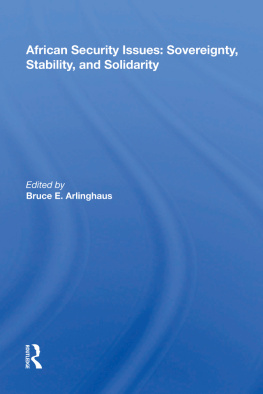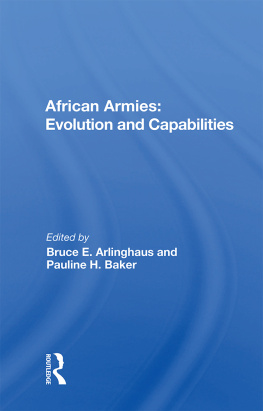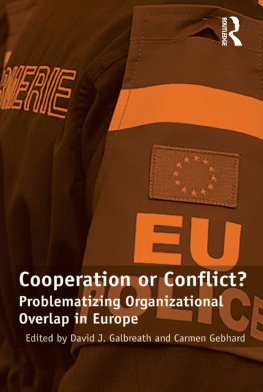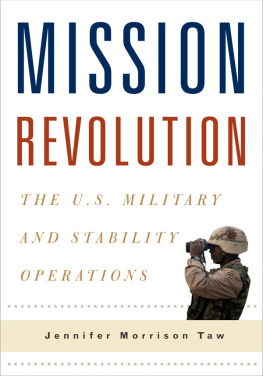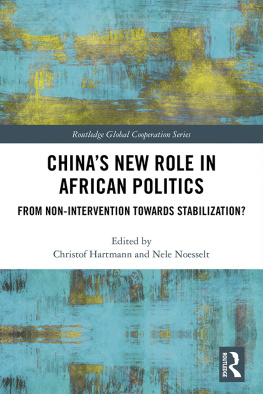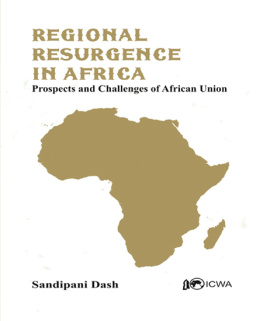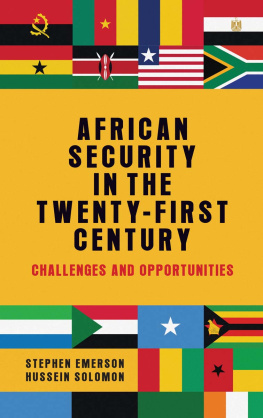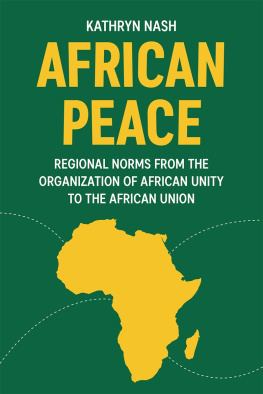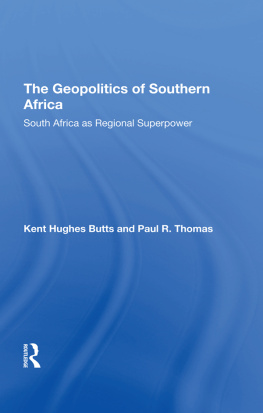African Security Issues
Also of Interest
Military Development in Africa: The Political and Economic Risks of Arms Transfers, Bruce E. Arlinghaus
The Challenges of South-South Cooperation, edited by Breda Pavli, Ral R. Uranga, Boris Cizelj, and Marjan Svetiii
Communist Nations' Military Assistance, edited by John F. Copper and Daniel S. Papp
Arab Aid to Sub-Saharan Africa, Pamela M. Mertz and Robert A. Mertz
Nigeria in Search of a Stable Civil-Military System, J. 'Bayo Adekson
The Economics of Political Instability: The Nigerian-Biafran War, E. Wayne Nafziger
Africa's International Relations: The Diplomacy of Dependency and Change, Ali A. Mazrui
The Foreign Policy Priorities of Third World States, edited by John J. Stremlau
State Versus Ethnic Claims: African Policy Dilemmas, edited by Donald Rothchild and Victor A. Olorunsola
Alternative Futures for Africa, edited by Timothy M. Shaw
Globalism vs. Realism: International Relations' Third Debate, edited by Ray Maghroori and Bennett Ramberg
Interdependence in a World of Unequals: African-Arab-OECD Economic Cooperation for Development, edited by Dunstan Wai
An Anatomy of Ghanaian Politics: Managing Political Recession, 1969-1982, Naomi Chazan
PROFILES OF CONTEMPORARY AFRICA:
Mozambique: From Colonialism to Revolution, 1900-1982, Allen Isaacman and Barbara Isaacman
Tanzania: An African Experiment, Rodger Yeager
Senegal: An African Nation Between Islam and the West, Sheldon Gellar
Swaziland: Tradition and Change in a Southern African Kingdom, Alan R. Booth
Botswana: Liberal Democracy and the Labor Reserve in Southern Africa, Jack Parson
The Comoro Islands, Malyn Newitt
Kenya, Norman N. Miller
Available in hardcover and paperback.
Westview Special Studies on Africa
African Security Issues: Sovereignty, Stability, and Solidarity
edited by Bruce E. Arlirighaus
As African nations emerge more fully from the immediate postinde-pendence era, there is a pressing need to examine their security concerns from both African and global perspectives. Issues of strategic access and resources, superpower and regional conflict, economic growth and internal stability, and the role of African nations as a significant bloc within the nonaligned world are examined in this collection in light of three concepts: sovereigntythe ability to achieve economic and political self-sufficiency free from foreign or domestic interference; stabilitythe creation and maintenance of a viable political environment in which orderly and progressive social and economic change may take place; and solidarity the development of intraregional interdependence and cooperation to foster both sovereignty and stability as well as a more significant and beneficial role for Africa in world affairs.
Dr. Bruce E. Arlinghaus (Major, U.S. Army) has been assistant professor of anthropology in the Department of Social Sciences, U.S. Military Academy, West Point. He is currently on assignment in the Office of the Deputy Chief of Staff for Operations, Headquarters, U.S. Army, Europe. He is author of Military Development in Africa: The Political and Economic Risks of Arms Transfers (Westview, forthcoming) and editor of Arms for Africa: Military Assistance and Foreign Policy in the Developing World (1983), and (with Lee D. Olvey and Henry A. Leonard) Industrial Capacity and Defense Planning: Sustained Conflict and Surge Capability in the 1980s (1983).
First published 1984 by Westview Press
Published 2018 by Routledge
52 Vanderbilt Avenue, New York, NY 10017
2 Park Square, Milton Park, Abingdon, Oxon OX14 4RN
Routledge is an imprint of the Taylor & Francis Group, an informa business
Copyright 1984 by Taylor & Francis
All rights reserved. No part of this book may be reprinted or reproduced or utilised in any form or by any electronic, mechanical, or other means, now known or hereafter invented, including photocopying and recording, or in any information storage or retrieval system, without permission in writing from the publishers.
Notice:
Product or corporate names may be trademarks or registered trademarks, and are used only for identification and explanation without intent to infringe.
Library of Congress Cataloging in Publication Data
Main entry under title:
African security issues.
(Westview special studies on Africa)
Based on papers presented at a panel held during the annual meetings of the African
Studies Association in Washington, D.C., in November 1982.
Includes index.
1. Africa-Strategic aspects-Congresses. 2. National security-Congresses. I. Arlinghaus,
Bruce E. II. Series.
UA855.A36 1984 355'.03306 83-14560
ISBN 13: 978-0-367-01647-0 (hbk)
As African nations emerge more fully from the immediate postinde-pendence era, there exists a pressing need to examine their security concerns from both a regional and a global perspective. Issues of strategic access and resources, superpower competition and regional conflict, economic growth and internal stability, and the role of African nations as a significant bloc within the nonaligned world are examined here in light of three concepts: sovereignty the ability to achieve economic and political self-sufficiency free from foreign or domestic interference; stability the creation and maintenance of a viable political environment in which orderly and progressive social and economic change may take place; and solidarity the development of intraregional interdependence and cooperation to foster both sovereignty and stability as well as a more significant and beneficial role for Africa in world affairs.
The majority of the chapters in this volume originated in a panel on "Inter-African Security Issues" held at the annual meeting of the African Studies Association in Washington, D.C., in November 1982. I would like to thank those who participated in that panelMike Clough, Steve Tucker, Don Rothchild, Claude Welch, John Ostheimer, Annette Seegers, and Pauline Bakersince their efforts and cooperation have provided much of the impetus of this book. I owe a special debt to the other contributors, whose collective response to a barrage of letters and telephone calls has produced papers of equal merit, complementing those of the panelists.
Funding for my participation and research was provided by the Faculty Development and Research Fund of the Association of Graduates, United States Military Academy. I would be remiss if I failed to acknowledge the support and assistance of my colleagues in the Department of Social Sciences at West Point. I would also like to thank Lynne Rienner and Deborah Lynes of Westview Press for their good faith and patience in helping me bring this book together.

